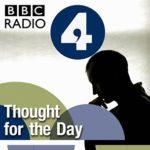
Last week I attended a meeting jointly called by the Home Office and Department for Communities, for faith communities, police and other stakeholders about the alarming rise in hate crime. Many saw the solution in greater vigilance in reporting unacceptable behaviour, and firm action by the police and courts. To me, as a Sikh this in itself, was like applying sticking plasters to surface sores without tackling the underlying malady, namely irrational prejudice that leads us to place negative connotations on superficial difference like colour of skin, dress or foreign accent.
The problem is that when two or more people find sufficient in common to call themselves us, they all too often find someone to look down on to strengthen their sense of unity. We see it in rivalry between football fans, and in its worst form it can lead to the horrors of the holocaust. Unscrupulous politicians all too often exploit the same irrational prejudices for political gain, particularly at a time of economic or social difficulty. We all know that in a fog or mist, familiar objects can assume grotesque and frightening forms, and it is the same when we look at fellow humans through a lens of ignorance and prejudice.
Some people suggest that keeping religion in the private sphere well away from politics is one way of addressing prejudice. Nothing could be less helpful. The Sikh Gurus taught that people of religion and political rulers should work together to build a tolerant and inclusive society. Living at a time of religious conflict, they were well aware of the dangers of prejudice, and stressed the equal dignity and respect of all members, male and female, of our one human family.
Guru Gobind Singh, 10th Guru of the Sikhs wrote:
God is in the temple as He is in the mosque
The Shia and the Sunni pray to the same one God
Despite differences in culture and appearance
All men have the same form. All pray to the same one God.
Today the fog of ignorance and prejudice is still very much evident in attacks on minority groups including the Polish community for speaking their own language. Much of this hate crime is directed against religious communities and responsibility lies with the secular and religious to address the language and actions arising from prejudice, to help us recognise common ground and imperatives for true community cohesion.

